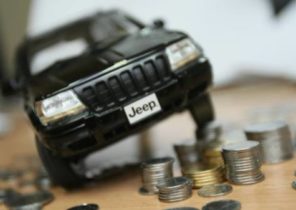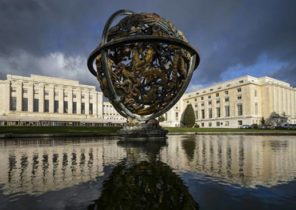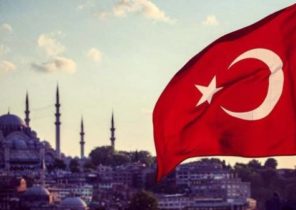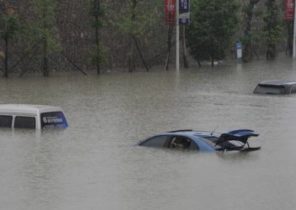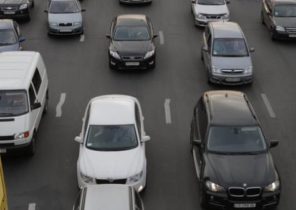
In these Christmas holidays should be a time of awareness for all who are immersed in the assumptions underpinning the informal political thinking. “Brakcet” will be held. The collapse of globalization. Freedom of movement as an absolute right in the EU, will end. Now worth, at least, to postpone the notion of the West as the champion, and sometimes the controller of human rights around the world.
Is not pessimism tells me to write it, and optimism. Optimistic that if we quickly adapt our thinking to the new reality, you can continue the fight for social justice and human rights on behalf of a generation who frowned at their smartphones for the Christmas table. But it’s a big “if”. This holiday season, I guarantee you will hear older relatives repeatedly will repeat “never”. “Britain will never leave EU”. “Donald trump has never come into the office.” “Fascism will never return to Germany and Austria.” Because denial is the first stage of grief, these phrases are excusable for people who barely passed through the “brakcet” to the second day of Christmas — but no more. When events occur that change the world, the reflex of denial is very strong because most reasonable people define their principles in accordance with existing facts.
For example, the European institutions, which guarantee freedom of movement, became the personification of the principle held by many that the borders should be as open as possible. No matter what freedom of movement within Europe was only possible with the installation of three-meter barbed-wire fence between Morocco and the Spanish enclave in Melilla. It seemed that a little “freedom” embodies the General principle.
In future, we have to separate our principles from the institutions that they once embodied.
Just as in the case of less well-defined principle of Europeanism. To 40 years I have not been in the United States. By the time I was traveling throughout Europe on foot, by air, rail and road transport. I was convinced that it is an inexhaustible cultural venue, a place, a place where all my values, while most of the United States was just a “hinterland”. The younger generation, which is pursuing a bachelor party in Riga, children’s holidays in Disney World in Florida and “free year” in Thailand will be less evropeiskim than mine. But their globalism was built on the assumption that Paris or Berlin is the place to travel for a weekend, in which you can get simply by showing a passport friendly border guard. Such thinking will also have to change. To “brakcet” plunges us into disaster, with GDP forecast by the Treasury, we must achieve two goals: first, to minimize our gap with the EU single market; and, if it fails to maximize it without regrets.
For those who embraced the instinct of negation, the goal is to minimize the gap — it seems easy, but not the means to achieve it. The means by which we can achieve a “soft breccia” — hard, selfish negotiations, which are tied for first place in the British national interest. If we fail — because Europe is a chaos controlled by the elite who deny their own failure — it would be logical to do a complete reorganization of our trade, production base and related to globalization. Even such as I, who fight for the most painless “brakcet” needs to think about what can be with social justice after the “hard” [“breccia”].
With regard to the global system of power, the choice of candidates, trump shows that he intends to destroy it. For the first time in a generation, Washington will not hinder the part of the Israeli right, prone to the most brutal rhetoric about the Palestinians. For the first time in a generation, human rights defenders in Russia have to look at the state Department and the CIA as a sort of informal channel with Vladimir Putin and the FSB, and not as their allies.
At the heart of all these changes is the fact that the global system becomes a game with a negative amount. For over three generations, it was a positive sum. This is the difference between The Great British Bake Off (baking show in Britain) and playing “pass the parcel”. In GBBO, despite the fact that the winner is one person, in the end is always more cakes than at the beginning. In “pass the parcel” – all except the winner lose, and the fact that the premise is always disappointing. Globalization was a positive sum, even if the former industrial population in the West it was barely positive. It lasted so long that people began to think that the economy in the spirit of “pass the parcel” was impossible. We understand that this is misleading. You can still fight for social justice, redistribution of wealth and human rights in the world with a negative amount — but you can’t do that, clinging to “principles” that you thought common, but it turned out to be wrong.
As free movement as an absolute right once we leave the EU, I would have changed immigration policy to ensure maximum social justice for two kinds of people: those who already live here, including three million EU citizens; and refugees, whose right to claim asylum here, should be absolute.
In a globalized world “competitiveness” meant a race to the bottom: low wages and the state with reduced well-being. In the world with a negative amount, this means the struggle for well-paid job that requires high qualifications, to work in the UK and not in another country. The weapon must be an active industrial policy, tax incentives, the high cost of social security and free higher education, paid for by the state.
We are a state with nuclear weapons, our main ally for more than 70 years was the USA, now they are controlled by a chaotic kleptocracy that is morally obliged to the Kremlin. This should encourage us to rethink all the most ambitious. At least four years in diplomacy, Britain should act independently. We need to stop supporting the illusion that we have the power to save the Syrian revolution, to restrain Israel in its next attack on Gaza, or to force Abdel Fattah Al-Sisi to release journalists from prison. Of course, we have to keep trying, but no promises of success.
These sobering facts put the left movement and the movement to protect the climate faces a difficult choice, just as it happened with the liberal center. As Churchill said to Congress on the second day of Christmas in 1941, all we can do is to “brandish the sword for freedom and throw away the scabbard”.


